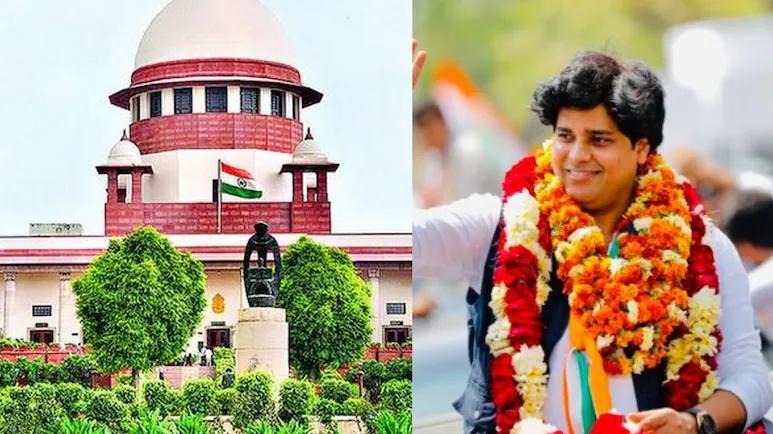
Please Apply Your Mind: SC to Gujarat Govt as Congress MP Pratapgarhi Booked Over Poem
In a recent development, the Supreme Court has questioned the Gujarat government over the FIR filed against Congress MP Imran Pratapgarhi over a poem. The top court has asked the state government to “please apply your mind” to the poem and not take any hasty action against the MP.
The FIR was filed against Pratapgarhi under Section 153A of the Indian Penal Code (IPC), which pertains to promoting enmity between different groups on grounds of religion, race, place of birth, residence, language, etc. The poem, which was recited during a function, allegedly targeted the “Hindu community” and was seen as an attempt to “incite communal hatred”.
However, the Supreme Court has taken a different view of the matter. During a hearing in the case, the bench comprising Justices Sanjay Kishan Kaul and Hrishikesh Roy said, “This poem indirectly says that even if somebody indulges in violence, we will not indulge in violence. Please apply your mind to the poem. After all, creativity is also important.”
The judges seemed to be of the opinion that the poem was not against any particular religion and that it was an expression of a personal opinion. They also pointed out that the FIR was filed without taking into account the context in which the poem was recited.
The Supreme Court’s intervention in the matter has raised questions about the growing trend of filing FIRs against individuals for expressing their opinions, however unpopular they may be. The court’s observation that “creativity is also important” has added a new dimension to the debate, highlighting the importance of artistic expression and the need to protect it.
The case against Pratapgarhi has sparked a heated debate, with many arguing that freedom of speech and expression must be balanced with the need to maintain social harmony. However, others have pointed out that the poem was an attack on the Hindu community and that it was an attempt to incite communal hatred.
The Gujarat government has defended the FIR, saying that the poem was “inflammatory” and that it had the potential to “disturb peace and tranquility” in the state. However, the Supreme Court’s observation has seemingly undermined the government’s case, highlighting the need for a more nuanced approach to dealing with such issues.
The case has also raised questions about the role of the police in dealing with cases of this nature. The FIR was filed without any prior investigation or consultation with the poet or the organizers of the function where the poem was recited. This has led to accusations that the police are being used as a tool to silence dissenting voices and to suppress artistic expression.
In conclusion, the Supreme Court’s intervention in the case against Imran Pratapgarhi is a welcome development, highlighting the importance of protecting artistic expression and individual freedom of speech. The court’s observation that “creativity is also important” is a timely reminder of the need to balance individual liberties with the need to maintain social harmony.
As the debate continues, it is essential to remember that freedom of speech and expression is a fundamental right, and that it must be protected at all costs. The Supreme Court’s intervention has sent a strong message to the Gujarat government and to all those who seek to suppress artistic expression and individual opinions.





